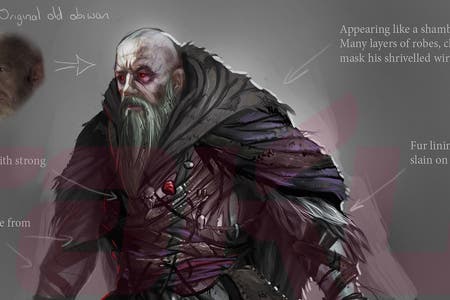Free Radical vs. the Monsters
The dark LucasArts: What drove the legend behind GoldenEye out of games, and the publishers who had a hand in the studio's demise.
The story of Free Radical Design begins with one of gaming's milestones, and after almost nine years it ended with the studio's blood on several publisher's hands. Founded in April 1999, the Nottingham-based studio created the much-loved shooter series TimeSplitters and third-person psychic drama Second Sight during the PS2 era. But Haze, the company's final game, received a critical mauling, sold poorly, and shortly afterwards Free Radical entered administration.
This article began with the question 'Did Haze Kill Free Radical?' But after speaking to every key figure in the company's history, the story turned out to be much bigger than the poor reception of one title. It's about how big publishers sometimes manhandle the developers they work with, and how badly they handle change. It's about how they asphiated one of Britain's finest independent developers, and drove an industry legend out of the games business.
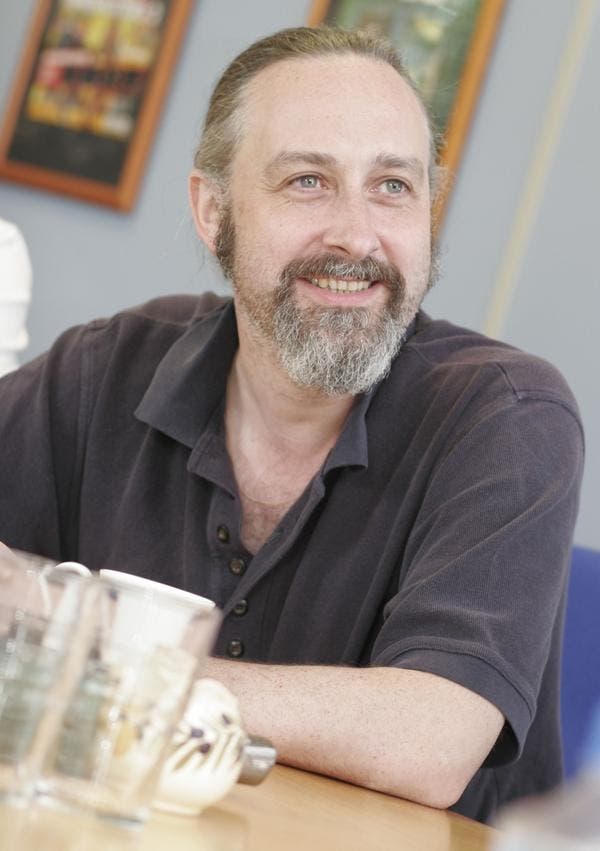
Free Radical Design was founded by key members of the Rare team that made GoldenEye. Released on N64 in August 1997, it was the first classic console shooter and sold a stunning eight million copies. "I think at the time we naively believed we did everything ourselves," laughs Free Radical co-founder Steve Ellis. "We were kind of a company within a company in Rare and credited ourselves for the success of GoldenEye, without really acknowledging that many other people played a part in that."
Dissatisfied with their meagre share of GoldenEye's profits, the team had nevertheless started work on successor Perfect Dark before, in late 1998, David Doak handed in his notice and set off a chain reaction. Doak had originally been hired as a network guy, but was soon one of three lead designers on GoldenEye 007. He's got a knack for getting into games; GoldenEye fans may remember MI6's sleeper agent 'Dr. Doak' (a friendly dig at Doak's doctorate from Oxford University) from the second mission. He later turned up in Haze as rebel leader Merino - the man the corporations want to slay.
"Steve and I hadn't really spoken about it very much," says Doak, Free Radical co-founder and director. "I think he was pretty shocked when I left Rare. But to Steve's credit he definitely galvanised me, and he's never been one for inaction." Doak and Ellis set up the company, and were joined by Karl Hilton, Graeme Norgate and Lee Ray.
The term 'Free Radical' describes atoms or molecules that are fiercely reactive. Free Radical Design was independent, jammed with talent, and determined to stand up for itself - a combustible mix that meant, initially, publishers were slow to react. Retaining the IP for titles it developed was a priority, which meant that Ellis and Doak had a few wasted meetings before Eidos made a move.
"When we set up we weren't going to make TimeSplitters," says Ellis. "We were making a game called Redemption that would end up being Second Sight." The estimated development time was three years. "Redemption was the plan," says Lee Ray. "Then Ian Livingstone says, being the Fighting Fantasy freak that he is, said 'Yeah we'll do it if it has demons in it.' He was obsessed with demons! So there was a bit of arguing and discussions about what exactly this game was going to be, and in that time Steve had banged out a very good first-person shooter engine. So now instead of all that talking, we could be cracking on with something."
"We started working on TimeSplitters and didn't tell Eidos about it," says Steve Ellis. "Then we showed them and they said, 'No definitely not, don't do that, we don't want it.' We carried on anyway, and when we went back to them a few months later they came round. The budget for it was very small, six figures, so it wasn't that big of a gamble."
That makes an audacious project sound easy. TimeSplitters was aiming to be a launch title for PlayStation 2, which meant October 2000 and a development time of sixteen months. "With a team of 15 everyone had to put the graft in," says Ray. "And everyone did. TimeSplitters was shambolic but bloody hell it was creative. That was a 15-man team working round-the-clock to get a launch game done on a platform we hadn't seen."
"We had a lot to prove," says Doak. "It was tremendously exciting. I remember getting up and just being so keen to get to work. It felt like a real moon shot, you know, and everyone who joined was really excited to be on board. Everyone pulled together, the artists and animators were sitting testing it until the 11th hour."
The next project was intended to be Redemption - but now that Eidos wanted another TimeSplitters. Free Radical began expanding. "At the end of TimeSplitters there were still only about 17 people in total," says Ellis. "We five founders were all still hands-on at that time. By the end of TimeSplitters 2 we had something like 30 people working on it."
"With TimeSplitters we showed we could do it," says Doak. "With the second one we wanted to make a genre-defining game. TimeSplitters 2 was great, it was brilliant, because we'd shipped a game, we had some very cool tech, we knew what we wanted to make better, and we just wanted to do the concept on acid."
TimeSplitters 2 was released in October 2002 and surpassed the original in every way. "Personally I think the best thing Free Radical did was TimeSplitters 2," says Ellis. "That was the highpoint for the company, the game that was most like what we wanted to do. Given infinite resources, it's what we would have done more of." The reviews were great, and the game would go on to sell well over two million copies across three platforms, but it wasn't the breakthrough hit Free Radical had hoped for.
Meanwhile, Second Sight had finally entered full production. The project had changed hands from Eidos to Activision, and Free Radical were about to taste business Bobby Kotick style. "We got some way through it with Activision," says Ellis. "Then they had a day in November 2003 where they made big changes. They decided they didn't like UK development anymore, they didn't like external development anymore, and they didn't like developer-owned IP anymore. Bad for us, because we ticked every box! On that day I think they canned ten projects and in the process put some companies out of business."
"It was a troubled development," says Doak. "Because that's when we found out how Activision worked. Bobby Kotick really loves developers! He wouldn't even speak to us, and we never spoke to him. He's quite happy to have some people put us out of business, but only does calls with investors. That was like the night of the long knives. We stood up to Activision, we had good legal counsel and they told us the right things to say. It looked like it was going to put us under for a bit, but didn't."

Free Radical's insistence on owning its own IP had paid dividends, and they were able to take the near-complete game elsewhere. But hopes of a big marketing push to back the studio's pet project had been dashed. "It ended up at Codemasters," says Doak, "But at that time they had their own problems - and the game came to them nearly finished, so they wanted to get it out as quickly as possible on a shoestring. We desperately needed someone to publish it, and they needed filler. That was it. Their Lara was Colin McRae, every publisher has one."
Second Sight was released in August 2004, and its final form eschewed Ian Livingstone's demons in favour of a unique combination of stealth action and psychic powers. "It was unfortunately timed," says Doak. "I mean what are the chances of people making two Asteroids Hit the Earth movies in one year? Must be a million to one! But there you are. And Psi-Ops came out at around the same time, and that blew our US sales out of the water. You could do more violent things in it like explode people's heads." The sales were far from stellar.
Free Radical's other project at this time was the last TimeSplitters game, Future Perfect. After TimeSplitters 2 EA had come sniffing around, and Free Radical was ready to listen. "EA Partners was this part of EA that was involved with third-party things," says Doak. "It was a bit like being groomed, you know. Here's all these friendly avuncular people that will give you all the love and attention you need to get your game out, and then after a while they go away and all the bad guys come around and it's like you're in borstal. Getting held down, beaten around the head with a cue ball in a sock."
"In retrospect, what happened after TimeSplitters 2 was that EA saw the Metacritic and came to us," says Ellis. "I don't actually think they'd looked at the game very much." The publisher demanded Future Perfect have a strong lead character in order that it appeal to the US market. "EA turned up with this stuff that was supposed to help us," says Doak. "And it was just big boards with pictures of Vin Diesel on them. Wesley Snipes was on one in his Blade outfit." Future Perfect ended up with Cortez, a cowardly and dumb marine whose catchphrase falls flat every time: "It's time to split!"
Future Perfect had the longest development of any TimeSplitters game, and there was a sting in the tail. "We had quite a frank conversation with EA," says Ellis. "Where they told us they weren't going to bother trying to market it very much. Because at the time they had their GoldenEye game [GoldenEye: Rogue Agent], and they said that for every dollar they spent on marketing that game they would get more dollars back. It didn't match up with their original promises."
"Throughout the development of Future Perfect we had EA people all the time coming to us saying 'yeah your game's alright, but not as good as this GoldenEye we're making.'" says Doak. "Continuously! 'Yeah I saw GoldenEye, it's awesome, you Brits had better raise your game!' And we asked to see it. 'No, no, you can't see it'. We killed ourselves getting Future Perfect done, only to find that they had made a total balls of GoldenEye to the extent they had to throw more money at it to market it, the money that they might have spent on Future Perfect. I mean, it's like fiction that it's a GoldenEye game, isn't it? I don't think the irony of what they were doing ever occurred to EA."
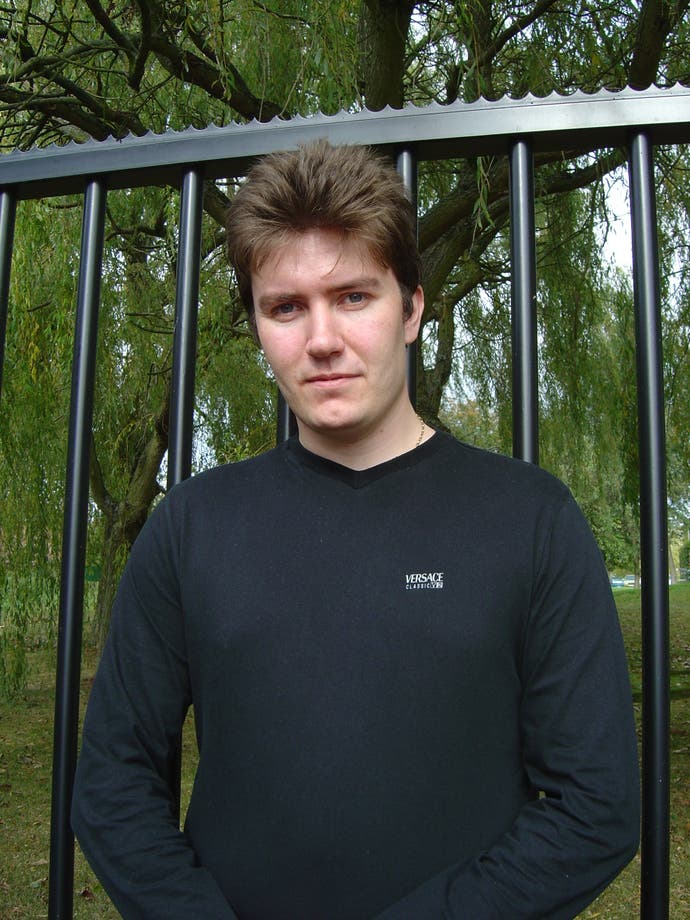
GoldenEye: Rogue Agent came out late in 2004 to a muted response, receiving a flat 60 on Metacritic. Future Perfect was released in March 2005, and while it received a warmer reception EA didn't push it, and it didn't achieve better sales than the series had under Eidos. "The problem is they never really got it," says Ellis. "That summarises it. And because they never really got it they tried to change it into something that they did get."
Free Radical was exhausted, and at a crossroads. "Second Sight wasn't a great success," says Doak. "Future Perfect sold a lot, but it didn't generate a lot of revenue for us. And we had a lot of people who'd killed themselves to get those games done. Our ethos was to reward these people, but we didn't have the money to do that as much as we wanted to, and that dents morale."
The studio's next moves would be made on a shifting battlefield, the move from the PS2 era to PS3 and Xbox 360. Publishers were facing rocketing production costs, and responded by becoming even more conservative, favouring internal studios and franchises that could hit four or five million sales with each instalment. "People were telling us, 'We don't like your cartoony styles, they don't sell. Can you do something more serious for a shooter, something more military?'" says Doak. "They wanted us to pitch stuff to them, but they were directing us down these narrow paths saying, 'Pitch us something a bit like this'. And what we should have said was 'f**k off, no. I'd rather go out and get run over by a car!'"
A consequence of the money involved was that retaining IP had become impossible, and Haze ended up signed to Ubisoft under a co-ownership deal. "The amount of money you were asking for to make a game was so much more than when TimeSplitters got started," says Karl Hilton. "Publishers just weren't prepared to invest seven or eight figures in something they didn't own a big part of."
"What I was hoping was we could make an anti-militaristic shooter, a kind of Apocalypse Now," says Doak. "But in terms of ambition it was crippled from the start, because we wanted to do this thing about the horrors of war, and Ubisoft were saying, 'Yeah go for it, something really horrific - but it's got to get a 15 rating.'"
"Previously we'd had the experience of an engine which just worked and you take everything for granted," says Haze's creative director Derek Littlewood. "Going from that to a situation where you're building everything fresh is very different, you can't throw together a level to test a particular style of gameplay because you don't have the tools to do it. On TimeSplitters 2 and Second Sight we were able to try out a lot of different things in-game during development, but on Haze that process was so much harder."
But what crippled Haze wasn't the age rating. "We made the decision to continue developing our own technology," says Steve Ellis. "Because that had worked well in the past, and we had a new generation of programmers who wanted to do away with our previous engine, which was C-based, and replace it with a C++ one. It sounded like a good idea. It sounded like we were going to solve a bunch of problems we might run into as things scale up. It didn't, and that was the start of our problems."
The problems meant delays were inevitable, and Free Radical approached Ubisoft. "When you're talking to any publisher about delays the first reaction is denial," says Steve Ellis. "You spend a lot of time talking and effectively making the situation worse. The next stage is reluctant acceptance, coupled with compromises as a result of us missing our date. We were made to do things because we had lost our ability to say no. That's where things went wrong."
Free Radical had to work to moving dates, as the game was delayed in small increments rather than the big one it needed. "It's like you're in a race and you're racing along, and there's a mechanic hanging on to the front trying to finish the car," says Doak. "And every lap you've got to smile, wave to the grandstand and pretend you're doing really well, even though on the other side you can see two wheels have just come off."
If things weren't bad enough, Haze soon had another problem. Ubisoft had agreed a deal with Sony whereby the game would become a PS3 exclusive in return for significant marketing support. "I have a tremendous amount of respect for Derek Littlewood," says Haze's project manager Martin Wakeley. "Because it became exclusive late in the project. And to be quite candid, it had never really ran on the PS3."
"We had internal people getting frustrated with some of the things we were making," says Doak. "But people were killing themselves to get Haze done, and they did amazing work. Some of the coders were those mechanics working on a car in a race, and hurting themselves doing it. I have enormous respect for the work people did on Haze. You always kind of hoped it might come together. But, you know, we're not stupid, we knew it wasn't what it could have been... we could see the problems."
Haze was released in May 2008, didn't receive the all-out marketing push than Sony had promised, and received a critical kicking, though with hindsight it's a game that, while flawed, is far from the disaster people say. Regardless, it didn't sell - and by now Free Radical had a much bigger problem.
The studio had completed Future Perfect and Second Sight with around 70-80 staff, but had been rapidly staffing up - thanks mainly to a deal signed in summer 2006. "The people at Lucasarts came and found us," says Doak, "and said we'd like to talk to you. Guys like Jim Ward and Peter Hirschmann, who I still have tremendous respect for."
Jim Ward was then the president of LucasArts, and his strategy involved a 'reboot' of the company's own IP - hence titles like The Force Unleashed and the aborted Indiana Jones project. Another was Star Wars: Battlefront 3, and LucasArts wanted Free Radical to develop it.
"They had good but very ambitious ideas about technology," says Doak. "And they seemed like nice people. We were fairly disappointed with where we were with Haze, and so even though we thought we didn't want to do work for hire as a principle, the fact that the work for hire was Star Wars did make a difference - it's not a bad one. It was also a fantastic tonic for the troops at Free Radical, because you don't have to go very far in development to find someone with Star Wars shit on their desk. It looked like a marriage made in heaven."
The studio hunkered down to its most ambitious project yet. "It was going well," says Doak. "They wanted to massively upgrade the scope, and consequently we were being required to be very ambitious technology-wise - when you see those leaked videos of it you can see it looks spectacular."
The key idea of Battlefront 3 was that players could seamlessly transition from a small-scale gunfight into a space battle simply by climbing into a ship and taking off. "It was so ambitious because you had to populate an environment like that on a scale like that, so we had some tough nuts to crack," says Doak. "We were continually trying to improve that, and it was going well, in fact it was going so well that we were going to make two, and they were letting us do some really interesting stuff with the mythology."
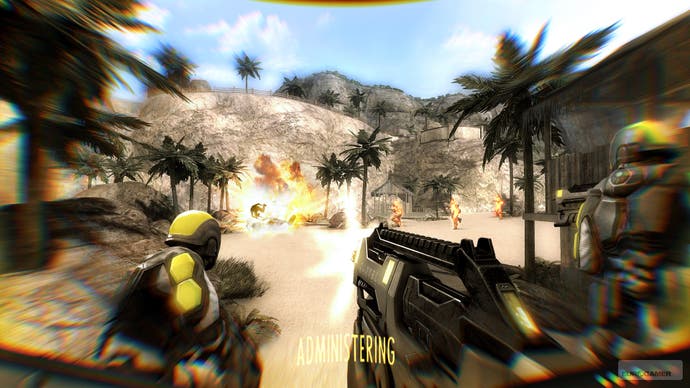
Battlefront 3 had started in mid-2006, and development continued until early 2008. Then things changed. "Steve and I began thinking that the dates were looking a bit tight for the first one," says Doak, "so we thought we'd do what we had never done before and let LucasArts know our concerns. Because LucasArts had been so good to work with, we thought they'd see the sense of what we were saying. And that coincided with Jim Ward not being there one day."
Internal forces at LucasArts had lost faith in Ward's 'reboot', not helped by new IPs like Fracture failing to make an impact, and on 4 February 2008 he left the company. "That was worrying," Doak continues, "but it didn't seem like it would be a bad thing. We still thought we'd done the right thing. And then we went from talking to people who were passionate about making games to talking to psychopaths who insisted on having an unpleasant lawyer in the room."
The appointment of Darrell Rodriguez as president of LucasArts was announced on April 2nd 2008. He wasn't the only new face. LucasArts was making sweeping changes as part of a new strategy, the first step of which was cutting their outgoings in half. Huge numbers of staff were fired, an entire layer of management was removed, and countless projects were canned. "For a long time we talked of LucasArts as the best relationship we'd ever had with a publisher," says Ellis. "Then in 2008 that disappeared, they were all either fired or left. Then there was a new guy called Darrell Rodriguez, who had been brought in to do a job and it was more to do with cost control than making any games. And the games that we were making for them were costly."
The conversations with LucasArts became incredible, wars fought from different perspectives, and an internal video lampooned the attitude Free Radical was facing. Funny as that is, it's gallows humour - the effect on the studio would soon become no laughing matter. Any ally Free Radical had, like LucasArts' own UK producer, soon exited. Battlefront 3's development remained ongoing, and despite talks over the release date Free Radical was delivering on milestones.
But LucasArts began to press hard on other, less quantifiable, issues. "Stalling tactics," says Graeme Norgate. "If a publisher wants to find something that is wrong with a milestone, it's very easy for them to do so as there are so many grey areas within a deliverable. If the contract says, 'Graphics for level X to be release quality,' who can say what's release quality? And there you have it."
"LucasArts hadn't paid us for six months," says Norgate "and were refusing to pass a milestone so we would limp along until the money finally ran out. They knew what they were doing, and six months of free work to pass on to Rebellion wasn't to be sniffed at." Part of the eventual agreement between LucasArts and Free Radical saw certain assets passed on to Rebellion Studios. For a time LucasArts was tempted by the thought of a hastily put together Battlefront 3, but nothing came of it. When presented with the allegations put forth by this investigation, LucasArts said simply that it does not comment on rumour and speculation.
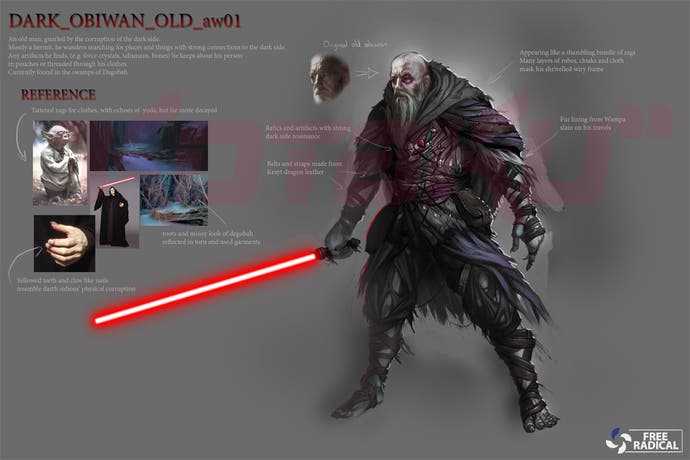
"We had a lot of good people," says Doak. "We'd got ourselves into this situation where we had staffed up to fulfill these contracts. And LucasArts said to us, 'Well we've got rid of our people, you get rid of your people.' No, because I'm attached to my people. Some people who work for them did terrible things to us."
"In many ways it was a depressing farce talking to them," says Doak. "They had an agenda motivated by purely financial considerations. Their goal was to stop doing it. And it didn't matter that we had a contract that protected us. If we wanted to fight about it they were quite happy to fight about it, but it would be on their terms, on their turf, and we would lose not because we were wrong, but because... well, we wouldn't be able to ante up."
LucasArts wanted to find an exit, and the balance of power swung firmly in its favour. "What we found out in 2008 is that your contract is only worth as much as how far you can pursue it in court," says Steve Ellis. "Say the contract is, 'If publisher wants out, they have to pay X million pounds to developer.' Well, what if they don't? What are you going to do about it?"
LucasArts presented Free Radical with a choice. "The amount of time [court] would take was more than the money we had left," says Ellis. "So in practice the publisher wants out, and what they do is offer a fraction of that amount. And you either accept a smaller payment and hope to pull through one way or another, or you don't accept the payment and go out of business quite quickly." Free Radical had no choice at all.
The pressure on David Doak was unimaginable. "My role at Free Radical meant that I was simultaneously involved in these unpleasant 'high level' discussions with psychopaths who wanted to destroy us, and then the next day sitting with our dev staff at their desks trying to boost people's morale. Helping them to pass milestones that I knew would subsequently be manipulated to cause them to fail. It was the most depressing and pointless thing that I have ever been involved in. The dream job which I once loved had become a nightmarish torture."
"I found it impossible to reconcile that situation in my head and I had a nervous breakdown. I had to stop and take time off for the sake of myself and my family - ultimately I left the company I founded feeling like I had failed it."
The vast majority of Free Radical's employees had no idea about Doak's circumstances. But the situation of the studio was clear; over 200 employees, but no projects signed and no money coming in. "At that point it hit home," says Derek Littlewood, "and people worked very hard to try and put together prototypes and design documents, we were gathering pitches that we could take out to publishers. I think everyone realised the seriousness of the situation."
"We had money in the bank, so we were able to carry on operating," says Ellis, "and Free Radical was in the probably unique position of not having borrowed any money." But this was mid-2008, and the height of the global financial crisis. "Big publishers were wondering what was going to happen," says Ellis, "And finding it very difficult to talk about signing up anything new."
One project they didn't want was TimeSplitters 4, which had been in development during the final years of Haze. "We tried to do TimeSplitters 4 with everyone," says Martin Wakeley, "and they weren't interested. People say they love it, but no-one wants to sell that game." The game had been built using an upgraded version of the original engine. "Running at a constant 60 fps," says Norgate "and with more lighting effects than we could even dream of in Haze. Too little too late, unfortunately."
Time was running out, and something amazing nearly happened. "Activision came to us and said do you want to make the next GoldenEye game?" says Ellis. "And that was a thing that gave us hope, and made us determined to turn things around."
For a brief moment, it existed. "In a very short space of time I had to throw together some ideas for what we would do with a remake of GoldenEye," says Littlewood, "and then one of our artists put together a new dam. We did it all in the end for PS3 and Xbox 360, the engine we had for that, so it was actually playable on there and all updated with minutiae and textures. It never saw the light of day, but we did that initial work because we wanted to show our willingness."
"Then GoldenEye suddenly disappeared," says Ellis. "Without ever any explanation, really. That sounded like a brilliant opportunity. That was one of the things that was happening right at the end when we didn't have many more options. In the end, they chose not to do it." Administration loomed.
"I can tell you exactly when it happened," says Ellis. "It was a memorable day. The day of our Christmas party in 2008. We always had a Christmas party and we always paid the bonuses then. Even at that stage we had a couple of good prospects that looked like they'd sort things out. That day it became clear they wouldn't happen, and administration was unavoidable. I remember quite clearly being at the party, seeing all these happy employees saying things like, 'Thanks for the bonus, I love working at Free Radical, it's great.' I didn't really know what to say. 12th of December 2008. A memorable day, and not a good one."
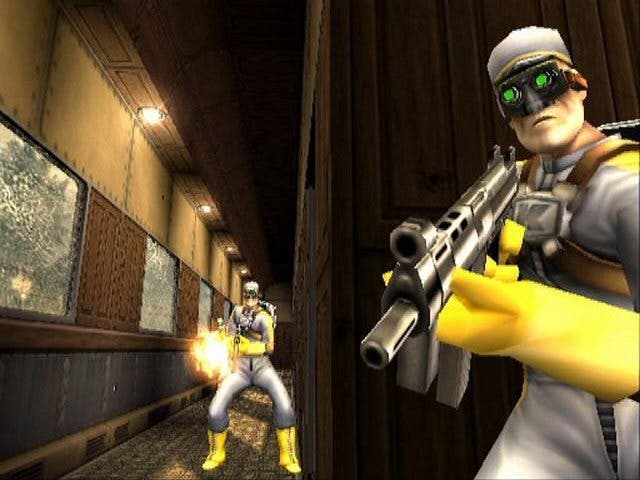
The administration process saw around 140 people losing their jobs, while a skeleton staff of around 40 was kept on to keep the company running. During this time Rebellion, always on the margins, turned up to put in bids for certain of the studio's assets. "Rebellion were one of the interested parties [during administration] and yes, put in an offer," says Ellis. "The sad fact is that in a situation like that, everyone is looking for a bargain so there were no 'good' offers - only 'preferable' offers."
But the process ends with Crytek purchasing Free Radical Design, and keeping a small but significant number of its people in a job. Crytek UK, managed by Karl Hilton and with Graeme Norgate on audio duties, has subsequently worked on Crysis 2's multiplayer and is current developing Homefront 2. Steve Ellis and Martin Wakeley have gone on to found Crash Lab, Derek Littlewood now runs Eggbox Interactive, and Lee Ray is an affable freelancer. David Doak remains outside the industry.
"The thing is we stood up for ourselves, we weren't afraid to tell people we disagreed with them," says Doak on the fall of Free Radical. "I think almost a decade later there were many people happy to stand around and watch the company go under. Maybe there were a few grudges. How come no publisher wanted to save Free Radical? Well we weren't well-behaved compliant boys. We were passionate about what we did and wanted to protect ourselves and be rewarded for our work. Perhaps if we'd been a bit more submissive that would have saved us. But who knows?"
The story of Free Radical runs in parallel to how the big console publishers have changed over the last decade. Free Radical was a studio that made its own tech, tried to keep control of its own IP, and even in 2012 stands as one of the few developers honest enough to pay their employees overtime. There are so many other ways it could have gone. What's hard to take is that it's done. Timesplitters may return, but Free Radical never will.
"Everyone knows all the horror stories about development," says Doak. "And it's a real shame, because it turns people off it in the end. There's this aspect open to exploitation where because it's your dream job, doing something you really love, you should endure all kinds of abuse to do it. Having watched it from the sidelines for the last few years, it seems to have gotten worse. It's just this big furnace that burns people. It's like that thing, where if you enjoy sausages you shouldn't see how they're made. That applies to games."
